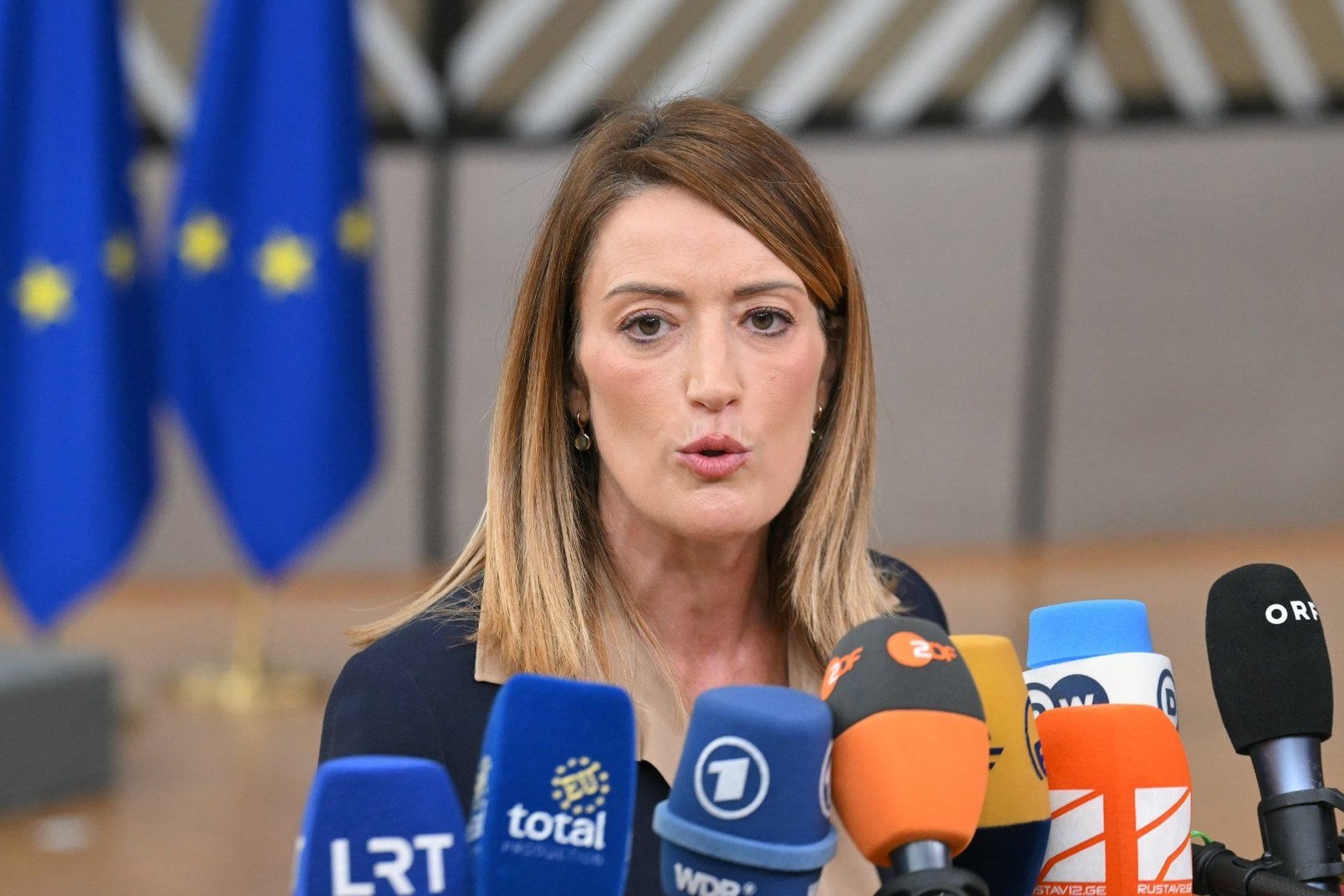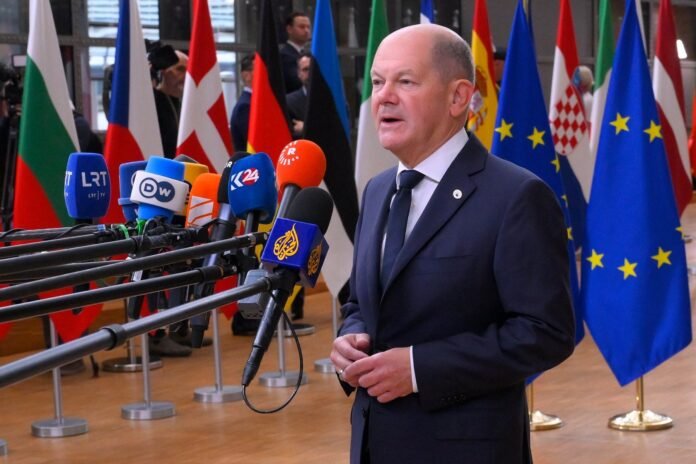Deportation of irregular migrants “is the missing link” in European migration policy. “We have to think outside the box,” pleaded Greek Prime Minister Kyriakos Mitsotakis upon his arrival.
In particular, European leaders must debate the incendiary proposal of “return hubs”, transfers of migrants to reception centers in third countries, as Giorgia Meloni’s Italy is starting to do in Albania.
These centers are only a “drop in the bucket” and do not represent “a solution” for “big countries” like Germany, said Chancellor Olaf Scholz, who presented himself to the press.
Spain is against it, while France cautiously calls for “promoting returns when conditions allow”, “rather than organizing returns to hubs in third countries”, according to the Elysée.
The discussion is “very vague and preliminary”, there is “no plan” at these points, adds a European diplomat, who does not expect “any major decisions” from this summit.
On the offensive, the Italians organized an informal meeting around Giorgia Meloni to promote these “innovative solutions” against immigration, with about ten countries, including the Netherlands, Greece, Austria, Poland and Hungary.
Nationalist Viktor Orban’s Hungary heads the rotating presidency of the Council of the European Union until the end of December and hosts the next summit on November 8 in Budapest.
In May, the EU adopted the Migration and Asylum Pact, due to enter into force in mid-2026, with a tightening of “filtering” at the borders and a solidarity mechanism between the 27 in the care of asylum seekers.
Countries such as Germany and France are pleading to speed up implementation.
And migration issues are returning to shake up the agenda, pushed especially by far-right parties, on the rise in many European countries.
Some in the EU are “hearing what we’ve been saying for years,” cheered French far-right leader Marine Le Pen as he traveled through Brussels for a meeting with Patriots for Europe, the European Parliament’s third force policy after the June elections.
Several governments have raised their voices and are calling for the rules on the deportation of irregular migrants to be simplified. The “Franco-German engine is pushing us to act,” according to a European diplomat.

The president of the European Commission, Ursula von der Leyen, agreed with them on Monday in a letter to the 27. She is proposing a new law which would revise the 2008 “return directive” to facilitate deportations at the borders.
A similar initiative failed in 2018, but “six years later the debate has evolved”, “towards the right” of the political spectrum, notes a European official.
This tightening of tone comes as the number of illegal crossings detected at the EU’s borders fell by 42% during the first nine months of 2024 compared to the same period the previous year, according to the European border monitoring agency Frontex.
This summit also takes place in a transitional phase in Brussels, where the new team from the European Commission should take office at the beginning of December.
It is marked by the difficulties of several European leaders in their countries, especially Emmanuel Macron, weakened by the explosion of deficits in France and the fragile relationship with the new Prime Minister Michel Barnier, from the right and without a majority in the National Assembly.
Support for Ukraine in the presence of Volodymyr Zelensky and the call for de-escalation in the Middle East are the two other big topics on the agenda of the European summit on Thursday.
But “the most sensitive discussion” between member states “will certainly be that of immigration”, assures a senior official, who fears that the Europeans will not be able to agree on this aspect in the final declaration.
